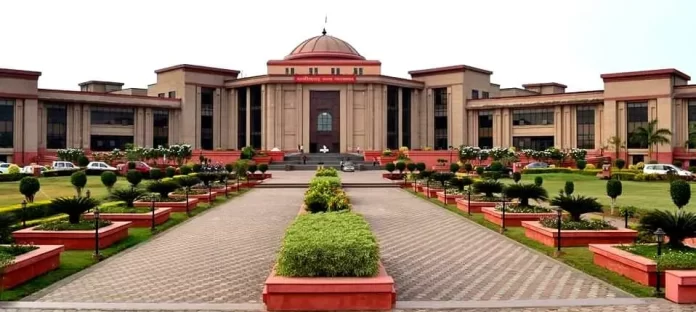The Chhattisgarh High Court dismissed a Public Interest Litigation (PIL) filed seeking direction to the respondent authorities to make appropriate amendment in the Motor Vehicle Act 1988 to fix the time period for issuance of permit after grant by State Transport Appellate Tribunal (STAT) or for any other Transport Authority, in the interest of justice or to abolish the STAT Raipur as the orders passed by STAT is utterly violated and even after 3 to 4 years the same could not be complied in true spirit and permit are not issued in compliance of Judicial order and thus respondent have made the existence of STAT useless by there inaction.
Bharat Lal Dembra , counsel for the petitioner submitted that the transporters of the State of Chhattisgarh have moved various applications under Section 72 of the Motor Vehicle Act for grant of Stage Carriage Permit for various regional and interstate routes. The permit applications in number of cases have been rejected by the Regional Transport Authority and State Transport Authority against which, statutory appeals have been preferred by the aggrieved transporters to the State Transport Appellate Tribunal (STAT) under Section 89 of the Motor Vehicle Act and the same have been allowed and directed to grant the Stage Carriage Permit within 30 days, but after lapse of more than 3-4 years also, the said permit has not been issued in compliance of order of the State Appellate Tribunal.
He further submitted that this is because there is no penal provision in case the permit is not issued after grant order, neither there is specific time period for issuance of permit after grant order and that is why the transport officers are continuously violating the grant order and public at large is suffering badly and even the State is at heavy revenue loss because due to non issuance of permit heavy road tax which State can get is also lost.
He further contended that the Supreme Court in case of Mithalesh Garg Vs. Union of India and others (AIR 1992 SC 443) has held that the public convenience is the top consideration and more and more permit has to be issued to meet out public need and even right of objections of other transport has also been taken away and thus the intention of Hon’ble Supreme Court and Motor Vehicle Act is liberal policy to grant permit so that peoples at large may get proper transport facility. Hence this Public Interest Litigation.
From bare perusal of the prayers and pleadings made in the petition , the Division Bench of Chief Justice Ramesh Sinha and Justice Ravindra Kumar Agrawal noted that the issue which has been raised by the petitioner amounts to effecting the personal rights of the independent aggrieved persons and no public interest at large is not involved in the instant case.
The Court said that it is the duty of the Court to ensure that there is no personal gain, private motive and oblique notice behind filing of PIL. In order to preserve the purity and sanctity of the PIL, the Courts must encourage genuine and bonafide PIL and effectively discourage and curb the PIL filed for extraneous considerations.
“The Courts should, prima facie, verify the credentials of the petitioner before entertaining a PIL. It is also well-settled that the Courts, before entertaining the PIL should ensure that the PIL is aimed at redressal of genuine public harm or public injury. The Courts should ensure the jurisdiction in public interest is invoked for genuine purposes by persons who have bona fide credentials and who do not seek to espouse or pursue any extraneous object. Otherwise, the jurisdiction in public interest can become a source of misuse by private persons seeking to pursue their own vested interests.”
The Court cannot allow its process to be abused for oblique purposes, as was observed by the Supreme Court in the matter of State of Uttaranchal vs. Balwant Singh Chaufal & Others, reported in (2010) 3 SCC 402. The Supreme Court in Balwant Singh Chaufal (supra) states as to how this important jurisdiction, i.e., Public Interest Litigation has been abused at Para 143 by observing as under:
“143. Unfortunately, of late, it has been noticed that such an important jurisdiction which has been carefully carved out, created and nurtured with great care and caution by the courts, is being blatantly abused by filing some petitions with oblique motives. We think time has come when genuine and bona fide public interest litigation must be encouraged whereas frivolous public interest litigation should be discouraged. In our considered opinion, we have to protect and preserve this important jurisdiction in the larger interest of the people of this country but we must take effective steps to prevent and cure its abuse on the basis of monetary and non-monetary directions by the courts.”
The petitioner, in the petition, has not disclosed his credentials. The petitioner, in the absence of any documentary proof to establish his authority or expertise in doing social work, does not have the requisite credentials to initiate petition in Public Interest.
The Bench was not satisfied that this is a genuine petition filed in public interest so as to invoke the jurisdiction in the public interest under Article 226 of the Constitution. Moreover, the credentials which a person has to disclose in filing the Public Interest Litigation in view of the judgment passed by the Supreme Court in Balwant Singh Chaufal (supra) has also not been disclosed by the petitioner, hence, the Bench do not find any good ground to interfere in the present Public Interest Litigation. ReplyReply allForward


